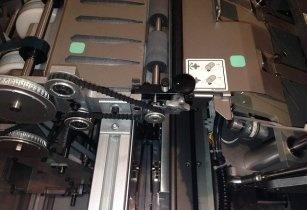COVID-19 is triggering the manufacturing sector to re-evaluate its traditional production processes, driving digital transformation and smart manufacturing across the production lines, according to Jason Chester, director of global channel programmes at InfinityQS
Manufacturers are collectively being forced to devise and implement new and agile approaches to product monitoring and quality control. One of their biggest logistical challenges involves ensuring their production lines are running, despite the lack of available staff due to social distancing rules. This is where digital innovations in smart manufacturing can offer many benefits.
Jason Chester, director of global channel programmes at InfinityQS, explained, “Before the lockdown started, business continuity in the event of a global pandemic was not a priority, as the risk or likelihood was not deemed high enough and the ROI was not clearly evident. Therefore, very few organisations were investing in the necessary tools and technologies to effectively respond to such a crisis situation on the scale that we are witnessing today.”
“COVID-19 has forced the industry to think smarter and ultimately build more resilience into their production environments. The rise of digitalisation and steady move towards cloud-based SaaS solutions has thrown manufacturers a welcome lifeline to help them stay afloat and maintain continuity against a very challenging environment. Those who have not yet started to develop a smart production environment are finding it difficult to cope and are looking for new ways to adapt,” he explained.
Jason commented, “Organisations are trying to achieve a level of robustness and flexibility that will help them respond to any future internal or external disruptions and those who are proactively investing in smart production lines have a distinct advantage over those who are not. We understand it isn’t possible to plan for everything, but you can start prioritising the key areas of your operations to ensure you can remain as agile, responsive, and efficient as possible.”
He continued, “Today’s digital cloud-based technology services and solutions offer an unprecedented level of flexibility, with factory managers able to remotely monitor and manage their production lines from any location with an internet connection. This allows resources to be deployed effectively, as staff do not have to be on the actual production floor. Instead they can use remote access cloud interface dashboards from the comfort of their homes to monitor production and pinpoint areas of improvement or quality issues.”
“Factory workers are essential to the nation’s health and prosperity. Regardless of the products you are making or the size of your company, you need to reduce the impact of potential disruptions by investing in the tools and talent to build a ‘factory for the future.’ This will enable you to keep things moving, even if the unexpected happens,” Jason concluded.





















